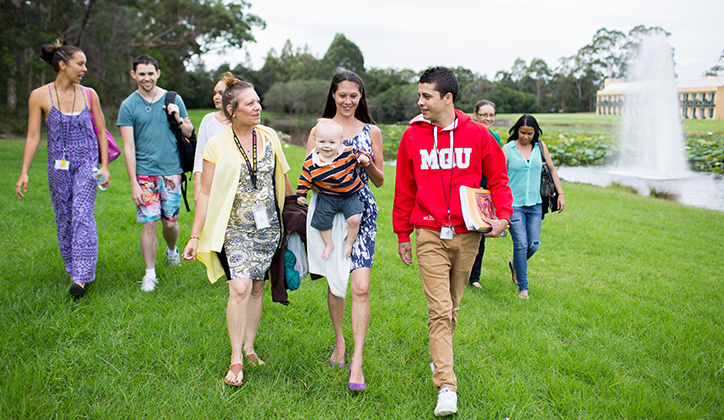Released by the Office of the Deputy Vice-Chancellor (Academic), the Indigenous Strategy Green paper proposes a new strategic direction for Macquarie that supports and promotes Indigenous inclusion, access and participation.
“The Green Paper aims to start a dialogue across the University about what we can do over the next ten years to address the challenges and opportunities for Indigenous education and proposes a set of strategic directions and priorities to bring real change in the future of Indigenous education at Macquarie,” says Associate Professor Shane Hearn, Director, Indigenous Strategy.
Over the coming months, Shane and his team will coordinate face-to-face opportunities for discussion about how this strategy can best be implemented.
“We invite everyone to read the Green Paper, and consider how we can work together to transform Indigenous education at Macquarie,” says Shane.
Access a copy of the Green Paper
Staff can provide feedback in a number of ways:
- Submit a response using the online feedback form
- Email alex.swain@mq.edu.au
All feedback is required by Friday 29 January 2016.
Watch an interview with Shane about the development of the Green Paper, below.
Introducing Walanga Muru
To coincide with the launch of the Green Paper, the Office of Indigenous Strategy (OIS) is pleased to announce a new Darug language name: Walanga Muru, meaning ‘follow your path’.
Shane explains the name was developed in consultation with the local Aboriginal community and Aboriginal and Torres Strait Islander students to reflect a new stage in the journey being taken by Macquarie and the Darug community. The new name has been accepted by the local Aboriginal community, and as a result, the OIS will no longer be known as Warawara.
“Our change in name marks the beginning of a new era, not only with strengthened community relationships, but also a commitment to mutual respect, reciprocity and engagement,” says Shane. “It also reflects our ambition and vision to support Indigenous students to become leaders in their chosen fields and provide a culturally safe ‘home away from home’ while they pursue their tertiary aspirations.”
The new language name Walanga Muru reminds us of the pathways we each take in life and the role of the OIS to support our communities to follow their pathways and realise their potential. As Aboriginal and Torres Strait Islander people, Walanga Muru links us back to the pathways of Land and our linkages to past, present and future.
The below story was supplied by key members of the local Darug Community, Aunty Edna Watson and Kerrie Kenton in conjunction with Sue Pinckham, Macquarie’s Cultural Adviser to provide the University with the narrative behind the Black Snapper Fish, the totem given to Walanga Muru.
“The black snapper fish is a shy but clever fish, who uses the shadows and patterns created by the mangroves to protect the younger fish. The mangroves are their nursery, their school and their home. The mangroves represent life – the obstacles and tangles that we need to navigate. At Walanga Muru, we seek to support students to choose the right path to take, assist them to navigate the obstacles and tangles of life, and to emerge as strong, resilient leaders for the future.”
Updated Welcome to Country and other Indigenous Ceremonies Policy and Procedure
The OIS has released an updated Welcome to Country and other Indigenous Ceremonies Policy and Procedure. The amended policy and procedure is available from Policy Central and provides staff with a comprehensive guide for all Indigenous Cultural Ceremonies and allows for bookings to be actioned through OneHelp.
A Welcome to Country or Acknowledgement of Country ceremony is conducted during official proceedings and events and the new procedure provides a streamlined approach for staff to action bookings.
For more information about Welcome to Country proceedings or other Indigenous cultural matters contact Emily Sutton (emily.sutton@mq.edu.au) or call ext 4209.


